Filter by
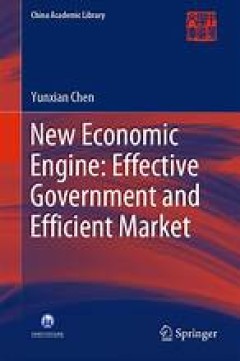
New Economic Engine: Effective Government and Efficient Market
This book contains at least three main highlights: breaking through the limitations of the mainstream Western economics system and the market theory framework, correctly explaining the successful experience of China’s reform and opening up over the past 40 years from an economic perspective, and developing a new economics system and market theory. China’s reform and opening up and innovativ…
- Edition
- 1
- ISBN/ISSN
- 978-981-15-2922-1
- Collation
- Economic
- Series Title
- -
- Call Number
- 338.1

Finance & Economics Readings
This book is a compilation of the best papers presented at the 2017 installment of the Asia-Pacific Conference on Economics & Finance (APEF), which is held annually in Singapore. With a great number of submissions, it presents the latest research findings in economics and finance and discusses relevant issues in today's world. The book is a useful resource for readers who want access to econom…
- Edition
- 1
- ISBN/ISSN
- 978-981-10-8147-7
- Collation
- EKONOMI
- Series Title
- -
- Call Number
- 330
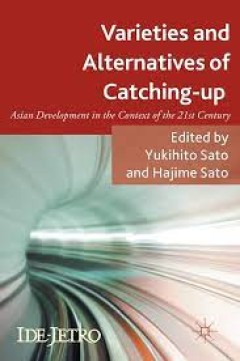
Varieties and Alternatives of Catching-up Asian Development in the Context o…
This book sheds new light on the advancement of various industries in developing Asian countries through an application and re-examination of catch-up industrialization theory. With contributors presenting their own perspectives on the progression of a range of different industries in Asia, this volume provokes readers to reconsider their current understanding of industrialization in latecomer …
- Edition
- -
- ISBN/ISSN
- 978-1-137-59780-9
- Collation
- -
- Series Title
- -
- Call Number
- -

Industrialization and Challenges in Asia
This book provides a much-needed review of Asia’s economic growth and its challenges in the context of post-war industrialization. In the early 1990s, the World Bank (1993) recognized eight high-performing Asian economies (HPAEs) (Japan, the Asian tigers, Indonesia, Malaysia and Thailand) and named them the ‘Asian economic miracle’. In the recent past, the term ‘emerging economies’ ha…
- Edition
- -
- ISBN/ISSN
- 978-981-10-0823-8
- Collation
- XXIV, 265
- Series Title
- -
- Call Number
- 330 JAY i

Rice Production Structure and Policy Effects in Japan
Kuroda uses quantitative measures to investigate the rice production structure and effects of agricultural policies in Japan over the second half of the 20th century. Almost all policies have played negative roles in transferring paddy lands from small- to large-scale farms, which has slowed down to modernize the rice sector.
- Edition
- -
- ISBN/ISSN
- 978-1-137-57315-5
- Collation
- -
- Series Title
- -
- Call Number
- -

Trade Strategy in East Asia From Regionalization to Regionalism
The study of regionalism is essential as it has become a vital trend with profound regional and global impacts. Japan, Korea and China are regarded as the key actors for such action in East Asia. While regionalization has created building blocks for economic integration, the act of exclusion from regionalism will only lead to marginalization. Therefore, it is important to learn how to make it w…
- Edition
- -
- ISBN/ISSN
- 978-1-137-56967-7
- Collation
- -
- Series Title
- -
- Call Number
- -
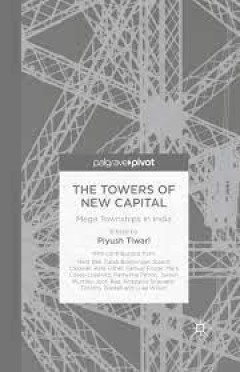
The Towers of New Capital Mega Townships in India
With mega townships as the tool, this book analyses the complexity, scale and the challenges associated with the development paradigm in India from various built environment lenses. The Towers of New Capital is an enquiry into how these 'global fixes' are leading to territorial reorganization.
- Edition
- -
- ISBN/ISSN
- 978-1-137-58626-1
- Collation
- -
- Series Title
- -
- Call Number
- -
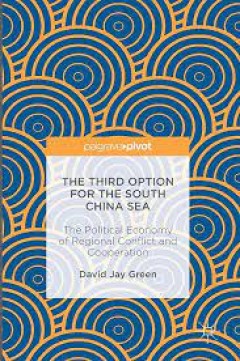
The Third Option for the South China Sea The Political Economy of Regional C…
This Palgrave Pivot uses a simple model from game theory to explain the behavior of countries disputing ownership of resources and of small islands in the South China Sea. It argues that the rapid transformation of the region's economy - the rise of Factory Asia – is not being acknowledged, leading countries to take chances beyond what a rational picture of costs and benefits would suggest. R…
- Edition
- -
- ISBN/ISSN
- 978-3-319-40274-1
- Collation
- -
- Series Title
- -
- Call Number
- -
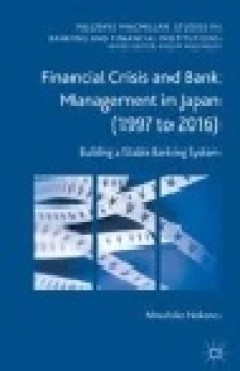
Financial Crisis and Bank Management in Japan (1997 to 2016)
This book explores the challenges faced by the Japanese economy and the Japanese banking industry following the financial crisis that emerged around the turn of the last millennium. The author explores how the Japanese financial crisis of the late 1990s engendered huge restructuring efforts in the banking industry, which eventually led to even more sweeping changes of the economic system and lo…
- Edition
- -
- ISBN/ISSN
- 978-1-137-54118-5
- Collation
- XXII, 184
- Series Title
- Palgrave Macmillan Studies in Banking and Financial Institutions
- Call Number
- -
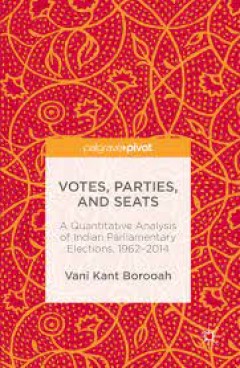
Votes, Parties, and Seats A Quantitative Analysis of Indian Parliamentary El…
This starkly lucid and timely book absorbs the nuances of the largest festival – the elections – of the world's largest democracy. Hailing from a political family, the author conveys his passion and knowledge on the intricacies, as well as the heat and dust of his national fête. All data and events have been methodically examined in this absorbing analytical work which is an indispensable …
- Edition
- -
- ISBN/ISSN
- 978-3-319-30487-8
- Collation
- XVII, 160
- Series Title
- -
- Call Number
- -
 Computer Science, Information & General Works
Computer Science, Information & General Works  Philosophy & Psychology
Philosophy & Psychology  Religion
Religion  Social Sciences
Social Sciences  Language
Language  Pure Science
Pure Science  Applied Sciences
Applied Sciences  Art & Recreation
Art & Recreation  Literature
Literature  History & Geography
History & Geography